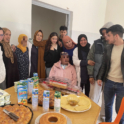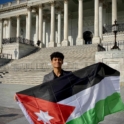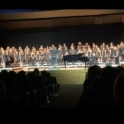Maryame has taken the lessons learned from her exchange year to make a difference in her community.
STORIES
Dare to Dive Project Continues to Inspire
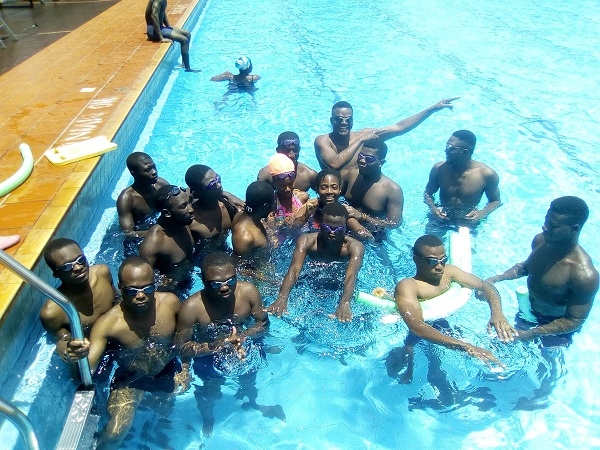
Last year, Alhaji launched his Dare to Dive project to provide swimming lessons for students with disabilities.
By Alhaji Mohammed (YES 2007-08, Ghana, hosted by AFS in Alexandria, VA)
All is well that ends well! This is the second and final part of the year-long Dare-to-Dive project. Learning to swim during my YES exchange year 10 years ago in Alexandria, VA, was all for fun at the time. Now, swimming has become an inspiration not only for me to give back to my community but also to instill self-confidence, self-worth and to serve as a tool of inclusion for persons with disabilities (PwDs) in my community.
Dare-to-Dive has provided swimming lessons for 60 persons with disabilities on the University of Ghana campus in Accra, Ghana. This project was necessary and timely because persons with disabilities are often not considered when it comes to university athletics and sporting events. Most sports activities in the University have been branded as not ‘friendly’ to disabilities due to accessibility issues, accommodation and lack of awareness of the abilities and inabilities of PwDs. This lack of inclusiveness results in decreased self-confidence among people with disabilities and their peers in the university. Dare-to-Dive was therefore designed to raise awareness of this problem among the University community, equip PwDs with swimming skills, and raise self-confidence among PwDs to participate in social and sports activities.
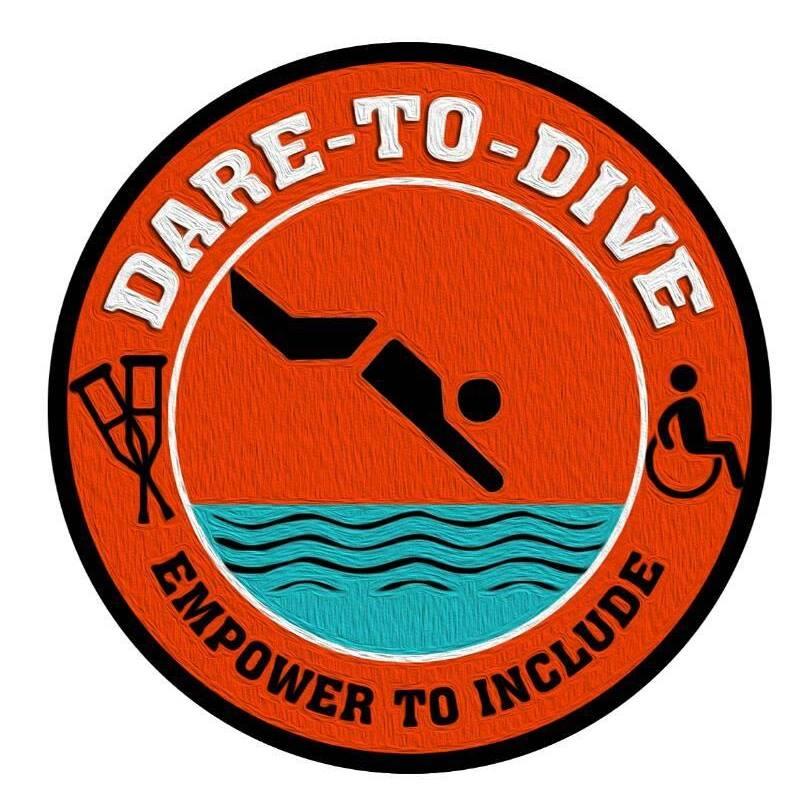
For a period of 12 months, about 60 participants, all persons with disabilities, were trained to swim. The University of Ghana Sports Directorate provided dedicated trainers who designed the schedule and routine that best fit the conditions of the participants while also taking into consideration the disability status of each participant. Inspirational speakers were invited at the end of each session to dine and engage with the participants.
There were a wide range of disabilities represented among the participants–physically-challenged (including amputees), hearing-impaired, and visually-impaired (including partial). Most participants are undergraduate students with some in their final year. While almost all of them had never experienced any water sport before, many also had a fear of water. This not only reduced their chances of survival in a city notorious for its perennial flooding, but also reduced the already short list of sporting activities they could participate in within the University.
The project was very successful and well-received by various stakeholders within the University community. The participants’ views and comments taken before and after the project revealed a sharp rise in their self-worth, self-discipline, perceptions about their abilities, willingness to participate in social and sporting activities within the University and the open-mindedness with which they approached life in general. Some of the visually-impaired participants emphasized that they were particularly surprised about their ability to swim and function in water even though they cannot see. The amputees and wheelchair-bound participants were equally impressed and shared similar successful stories about their progress.
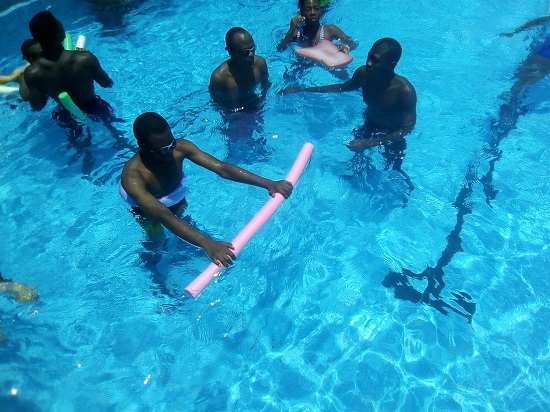
For the head coach, trainers, volunteers and me, the coordinator and YES alumnus, this project is so fulfilling and an inspiration. It helps us to realise that there is nothing we cannot do when we set our minds to it. For us, considering the logistical challenges, institutional challenges and constraints in resources, we achieved the impossible. For the trainers, training people with disabilities was a new experience for them and for the country as a whole. Our social media campaigns were also very successful, such that some PwDs outside the University community contacted us asking to participate. The University of Ghana Sports Directorate was so impressed with the success of the project that they are developing a module to include swimming in the list of sporting activities for people with disabilities. The project team will also monitor the performances of the participants to scout for possible Paralympic swimming team candidates. We would also want to repeat this project intermittently for new students with disabilities.
We extend our profound gratitude to the U.S. Department of State, Bureau of Educational and Cultural Affairs for sponsoring the YES program, to American Councils for awarding funds for this project, and to AFS USA and AFS Ghana for the YES Alumni Social Entrepreneur workshop which helped me develop this project. We also appreciate all the support from the University of Ghana Sports Directorate, the University of Ghana Office of Students with Special Needs and the Students Representative Council.


